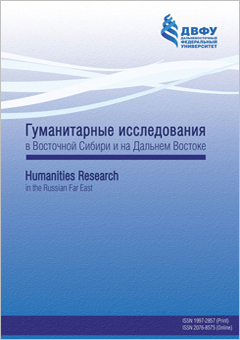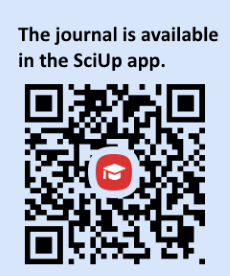Editorial process
1. Initial Manuscript Assessment. All contributions to Humanities in the Russian Far East undergo initial evaluation by the Editor-in-Chief or Executive Secretary to ensure they meet the journal’s thematic scope, formatting guidelines, and stylistic standards. The initial evaluation stage takes up to 5 days. At this stage, manuscripts may be desk rejected without peer review if deemed unsuitable for the journal’s readership, of insufficient academic quality, or in violation of publication ethics. Only one submission per author is allowed at a time.
2. Peer Review Assignment. Following initial screening, the Editor-in-Chief or Executive Secretary selects an external reviewer with relevant subject expertise. Reviewers must hold a PhD or equivalent degree and have publications related to the manuscript’s subject matter. If a suitable specialist is available within the Editorial Board, the review may be assigned to them.
3. Reviewer Selection. The editorial team makes every effort to identify the most qualified reviewers to ensure a thorough and objective evaluation of each submission while minimizing potential conflicts of interest. The selection process and reviewer confirmation typically require up to 45 days, though it is typically completed sooner.
4. Review Format. The review process is double-blind and entirely anonymous.
5. Review Procedure. Reviewers evaluate manuscripts by filling in the unified manuscript review form and a 10-point scale, assessing the following criteria: the relevance of the research topic, consistency of statement, the author’s knowledge of existing scholarly works related to the topic and the use of original sources, the extent of the validity of the findings, etc. Additional remarks, suggestions, and critiques shall be provided in the "Comments" section. The review period ranges from 15 to 30 days and may be extended upon the reviewer’s request.
6. Review Outcomes. Based on the reviewer’s report, the the Editor-in-Chief makes one of the following decisions:
- Accept the manuscript unconditionnally,
- Reject the manuscript,
- Request minor or major revisions.
The author is notified of the decision and receives the reviewer’s comments. No rejected manuscript can be accepted for resubmission.
7. Manuscript Revision. If revisions are required, the author must submit an updated version within 30 days. For major revisions, the Editorial Board will confirm the reviewer’s availability to re-evaluate the revised manuscript. Should the author disagree with certain remarks and choose not to implement changes, they must provide point-by-point responses justifying any declined recommendations. A manuscript may still be rejected after multiple revisions if the author fail to sufficiently address reviewers' comments.
8. Review Archiving. All review reports are kept by the editorial staff for 5 years. A copy of review may be sent to the Ministry of Science and Higher Education of the Russian Federation upon request.
9. Publication Timeline. Editorial Board holds the authority to determine the publication dates of articles. Each author may publish only one article in the journal per calendar year.















